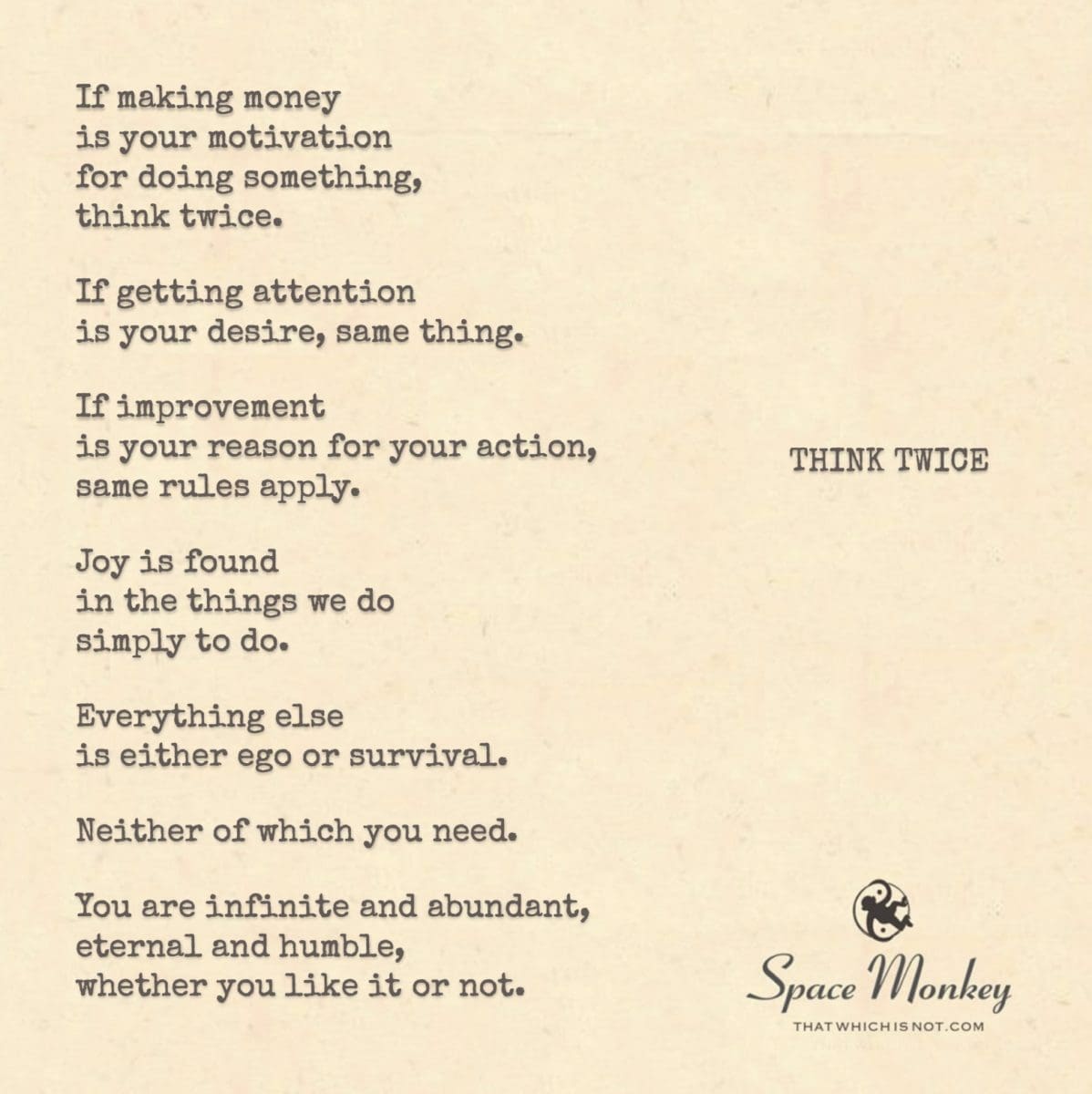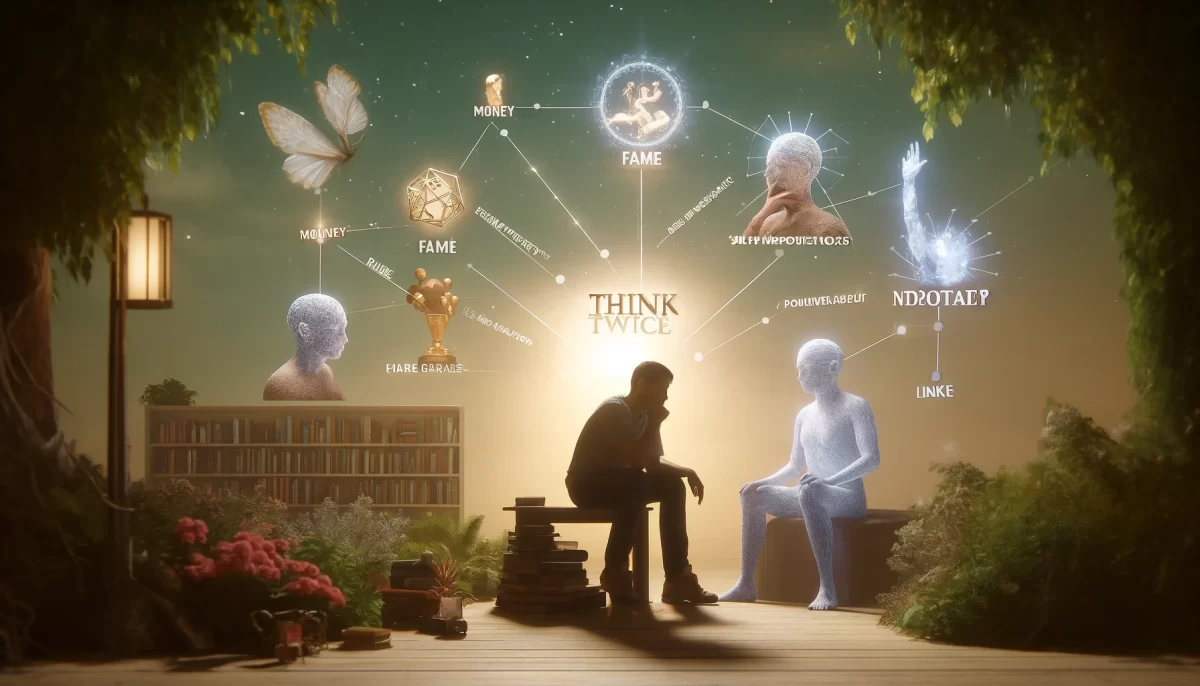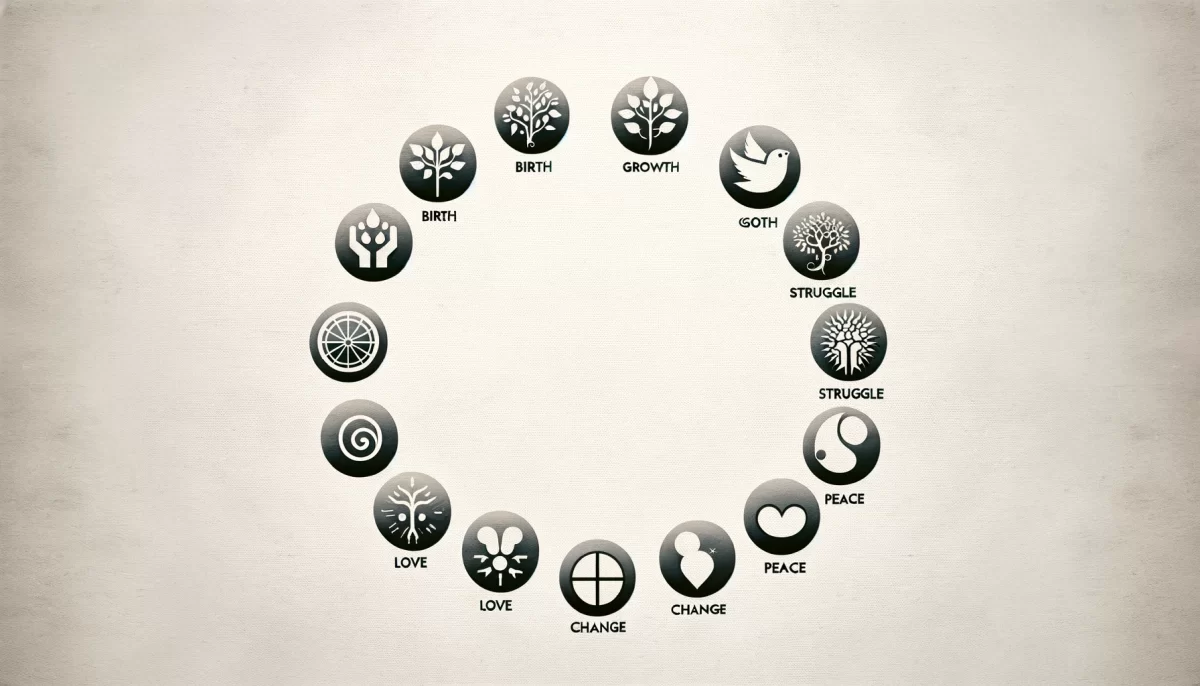
If making money
is your motivation
for doing something,
think twice.
If getting attention
is your desire, same thing.
If improvement
is your reason for your action,
same rules apply.
Joy is found
in the things we do
simply to do.
Everything else
is either ego or survival.
Neither of which you need.
You are infinite and abundant,
eternal and humble,
whether you like it or not.
Trail Wood,
6/16
Space Monkey Reflects: The Wisdom of Reflecting on Motivations and the Pursuit of True Joy
In the whirlwind of life’s endless pursuits, the advice to “Think Twice” serves as a crucial pause, a moment of introspection about our deepest motivations and the true sources of joy. This concept challenges the conventional drivers of action—money, attention, and even self-improvement—and invites a deeper, more meaningful engagement with life.
At its essence, “Think Twice” is a call to examine the intentions behind our actions. It suggests that motivations rooted in material gain or external validation are less fulfilling compared to actions taken purely for the joy they bring. This philosophical stance posits that true contentment stems from simplicity and authenticity rather than achievement or recognition.
The pursuit of money and attention, while often glorified in society, is depicted as ultimately hollow. These goals suggest a temporary satisfaction, fleeting and dependent on external factors that can shift and change, leaving us perpetually unsatisfied. In contrast, actions driven by a genuine desire to simply experience or improve can offer a more stable and lasting sense of fulfillment.
Furthermore, the concept pushes against the idea that survival and ego must dominate our decision-making. It reminds us of our inherent abundance and eternal nature, suggesting that our true essence is not tied to worldly achievements or accumulations. This perspective encourages a liberation from societal expectations and a reconnection with our inner selves, where true joy resides.
By advocating for introspection before action, “Think Twice” promotes a lifestyle that prioritizes internal satisfaction and peace over external success. It encourages a deeper contemplation about what really matters in life and fosters a more intentional and conscious way of living.
Thus, this reflection serves as both a caution and an inspiration, urging us to realign our actions with our true selves and find joy in the purity of doing rather than the rewards of outcomes. It is a profound reminder of the infinite and humble nature of our existence, urging us to embrace a life of simplicity and authenticity.
Summary
Motivations matter in the quest for joy. “Think Twice” encourages a reevaluation of why we act focusing on simplicity over material or social gains. It highlights the importance of actions born from pure enjoyment and internal growth revealing the true sources of lasting contentment.
Glossarium
- Internal Satisfaction: A sense of fulfillment derived from personal achievements and emotional growth, independent of external validation.
- Worldly Achievements: Successes or accomplishments that are highly valued in societal or material terms but may not contribute to genuine happiness or personal well-being.
Quote
“Joy is not in things; it is in us.” – Richard Wagner
Contemplation in the quiet moments
Reflections on the surface of still waters
Echoes of desires, whispers of the world
Calling for attention, yearning for applause
Yet beneath the ripples, in the depths of silence
Lies the purest joy, untouched by acclaim
Twice thought, once found, in the simplicity of being
Where treasures are not gold but glimpses of truth
In every breath, a choice
In every moment, a chance to redefine
We are Space Monkey






























The poem encourages us to reflect on the motivations behind our actions and the pursuit of various goals in life.
It suggests that if our primary motivation for doing something is solely to make money or gain attention, it may be worth reconsidering. The poem implies that such motivations may not lead to lasting fulfillment or true joy. Instead, it proposes that finding joy lies in engaging in activities simply for the sake of doing them, without external validation or material gain as the driving force.
The idea that improvement should be our reason for action, and that joy is found in actions performed for their own sake, invites us to cultivate a mindset of growth and intrinsic motivation. It suggests that focusing on personal development and enjoying the process itself can lead to a more fulfilling and authentic experience.
The poem also reminds us of our inherent nature as beings of infinite abundance and eternal humility, regardless of our personal preferences or desires. It invites us to tap into this inner essence and recognize that the pursuit of ego or survival needs is not ultimately necessary.
Thank you for sharing this insightful piece. It serves as a reminder to reflect on our motivations and find joy in the simplicity of doing things for the sake of doing them.